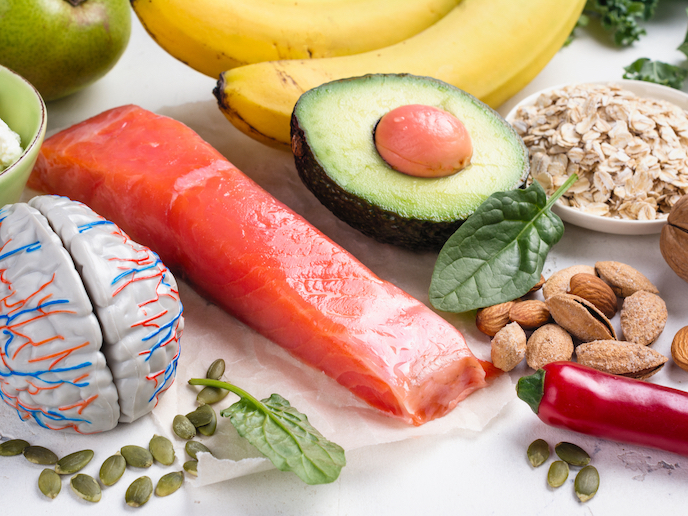Investigating the link between food and depression
According to a recent Eurostat study, obesity rates for the 19 European Member States for which data was available range from 8.0 % - 23.9 % for women and 7.6 % - 24.7 % in men (Eurostat 2011). Alongside this, the WHO has calculated that each year about 7 % of the European population suffers from a major depression – making it one of the most prevalent disorders in the EU. This places a heavy burden on individuals, families and society as a whole. MooDFOOD looked at the links between the two disorders to ask whether improving food-related behaviour and nutrient intake could help prevent depression, specifically for people prone to being overweight. Based on a large number of studies and careful analysis, the researchers came to three conclusions. Firstly, a healthy diet – high in fruit, vegetables, whole grains, fish, pulses and olive oil, and low in red meat and full-fat dairy products – may reduce the risk of developing depression. Secondly, in people with obesity, weight loss can lead to a reduction in depressive symptoms. Thirdly, current evidence does not support the use of nutritional supplements in order to prevent depression. Examining the links between mood and food After reviewing the scientific literature, the MooDFOOD researchers developed a theoretical model to highlight which relationships between food and depression merited further investigation. The model also incorporated the influence of lifestyle, the environment and psychology. “We started with observational studies which linked nutritional intake and nutritional behaviour, to depressive symptoms and vice versa. We also made an inventory of studies that had investigated the effect of specific nutrients on depression or depressive symptoms,” says Prof. Ingeborg Brouwer. Based on this work, the team developed nutritional strategies designed to prevent depression for a randomised clinical trial involving 1 025 overweight adults (body mass index 25-40kg/m2) aged 18-75 years with elevated depressive symptoms (Patient Health Questionnaire-9, scores≥5). The team chose a Mediterranean-like diet for the food-related behavioural therapy. For the nutrient supplement therapy, they combined several promising nutrients at dosages reported to be effective in some individual studies, but very unlikely to cause harm (1 412 mg omega-3 fatty acids, 30 μg selenium, 400 μg B-11 vitamin, and 20 μg D-3 vitamin plus 100 mg calcium). Twenty one individual and group food-related behavioural activation (F-BA) sessions were undertaken over a year, versus no F-BA (blinded to researchers). While results within the F-BA and outside of it have suggested a link between a healthy diet and overall health (mental as well as physical), primary analysis of the trial’s results showed the link not to be as unequivocal as the team had hoped. “What is clear is that there is no magic bullet. Daily nutritional supplements over a year did not perform better than placebos,” says Prof. Brouwer. “Therapeutic sessions aimed at making changes to healthier dietary behaviour also did not convincingly prevent depression. However, there was some evidence that it prevented episodes in those participants who attended a recommended number of sessions, suggesting repeated and sufficient exposure is key.” The researchers continue to analyse the available data to identify future research opportunities. In the meantime, all the MooDFOOD guidelines and tools are currently available through the project website.
Keywords
MooDFOOD, obesity, depression, nutrients, behavioural therapy, food, diet, mental health, weight, supplements, lifestyle



